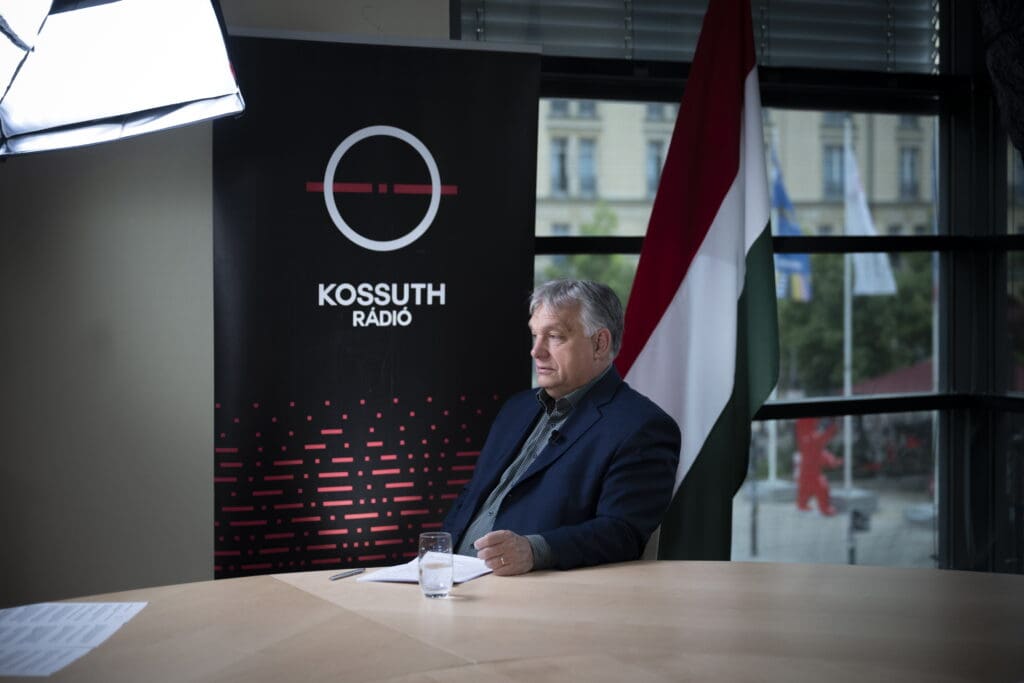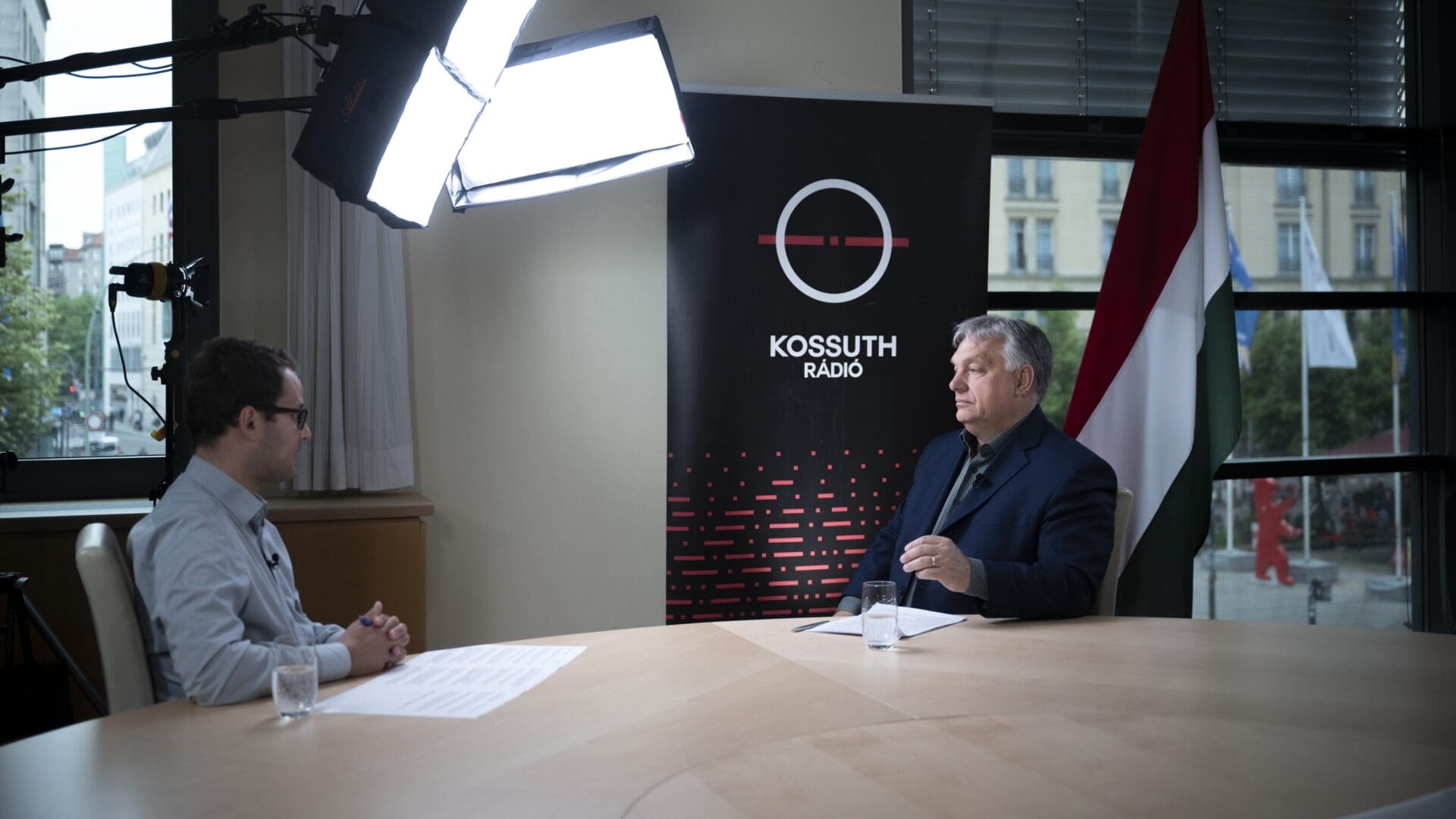Hungary will gain significant economic benefits by participating in the transformation of German industry, Prime Minister Viktor Orbán said in Kossuth Radio’s Berlin studio. The Prime Minister is set to meet the German Chancellor later in the day, whom he considers an ally. According to Orbán, both Germans and Hungarians have a vested interest in the interconnectedness of the global economy. Despite the European public opinion shifting to the right, Orbán believes this has not translated into political power, as the European People’s Party (EPP) is shifting votes from right to left. Manfred Weber, Orbán says, has long been an adversary of Hungary.
The Mercedes example illustrates the essence of Hungarian–German relations, Orbán stated. He emphasized the significant transformation of German industry, questioning whether there is a place for Hungarians in this change. His answer is affirmative, indicating substantial advantages for Hungary. Orbán noted that despite next year’s elections, it is crucial to solidify German–Hungarian relations. He warned of numerous issues in Europe and the global economy, stating that Hungary would suffer greatly if deprived of access to the global market.
Jó reggelt, Magyarország! 2024.06.21.
Jó reggelt, Magyarország! 2024.06.21.
He views Germany as a crucial ally, with both nations facing similar challenges. Reflecting on an informal EU summit, Orbán explained it was merely a dinner without legal decision-making power. He criticized the alliance between left-wing parties and the EPP, describing it as detrimental to Hungary, as it diverges from Hungarian public opinion and promotes a war agenda. Orbán expressed concern about Germany’s increasing militarization and the pro-war rhetoric in German media, which he finds unprecedented compared to three years ago. According to him, those not supporting the war are ostracized. He criticized the coalition’s stance on migration, accusing them of implementing George Soros’s plan, which involves bringing in one million people annually and offering financial incentives.
Orbán highlighted the demographic shift in Germany,
with a declining white population and increasing numbers of migrants and Muslims.
Orbán described Weber as a longstanding adversary of Hungary. He accused the EPP of stealing right-wing votes by aligning with left-wing parties, thereby diluting right-wing political strength in Brussels. Despite this, he believes the right is gaining strength across Europe. He highlighted the situation in France, where public opinion has shifted rightward, prompting the French President to call for new elections. Orbán contended that the West, led by the Americans, seeks to defeat Russia without direct conflict. While acknowledging Russia’s violations of international law, he argued that the West sees the conflict as an opportunity to weaken Russia via Ukrainian soldiers, a strategy he deemed hopeless and costly.

He stressed the importance of Hungary’s actions in this context, advocating for family values and parental rights, and rejecting social experiments. Orbán also mentioned past referendums as a basis for his arguments in Brussels. Despite no referendum concerning the war, recent elections reflect the public’s clear stance, enabling the government to pull the emergency brake and keep Hungary out of the conflict.
Orbán asserted that Hungary has successfully disengaged from the war,
emphasizing agreements with NATO leaders, including outgoing and incoming ones. However, he anticipates ongoing pressure from European countries.
He criticized Manfred Weber’s leadership of the EPP, noting that he ‘suffers from Hungarophobia. As long as he is there, nothing good can be expected.’ He reminded listeners that Fidesz played a key role in preventing Weber from becoming the European Commission President.
Orbán concluded by discussing Germany’s transformation into a multicultural society where migrants quickly gain citizenship, impacting national identity. He recalled his 2015 decision to reject mass immigration, arguing that
some political mistakes, like migration, are irreversible.
He urged Hungarians to reject such policies and preserve Hungary as an island of peace.
Related articles:








